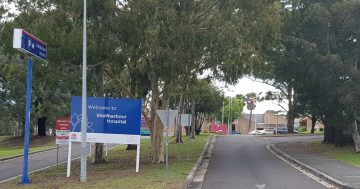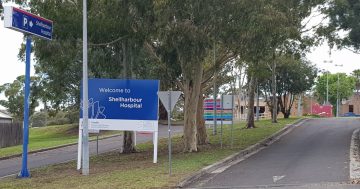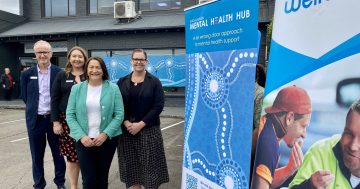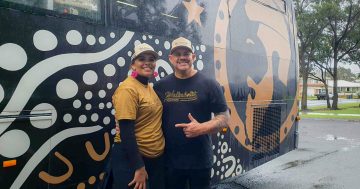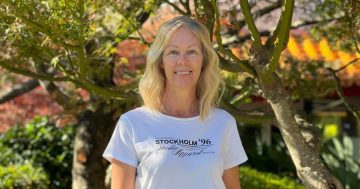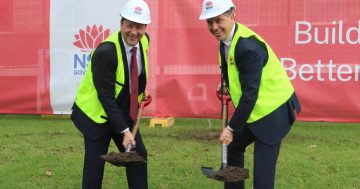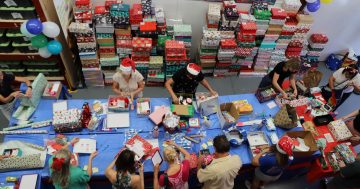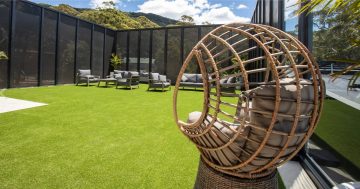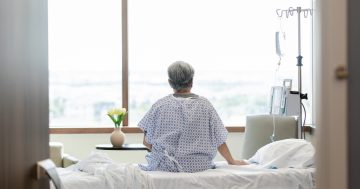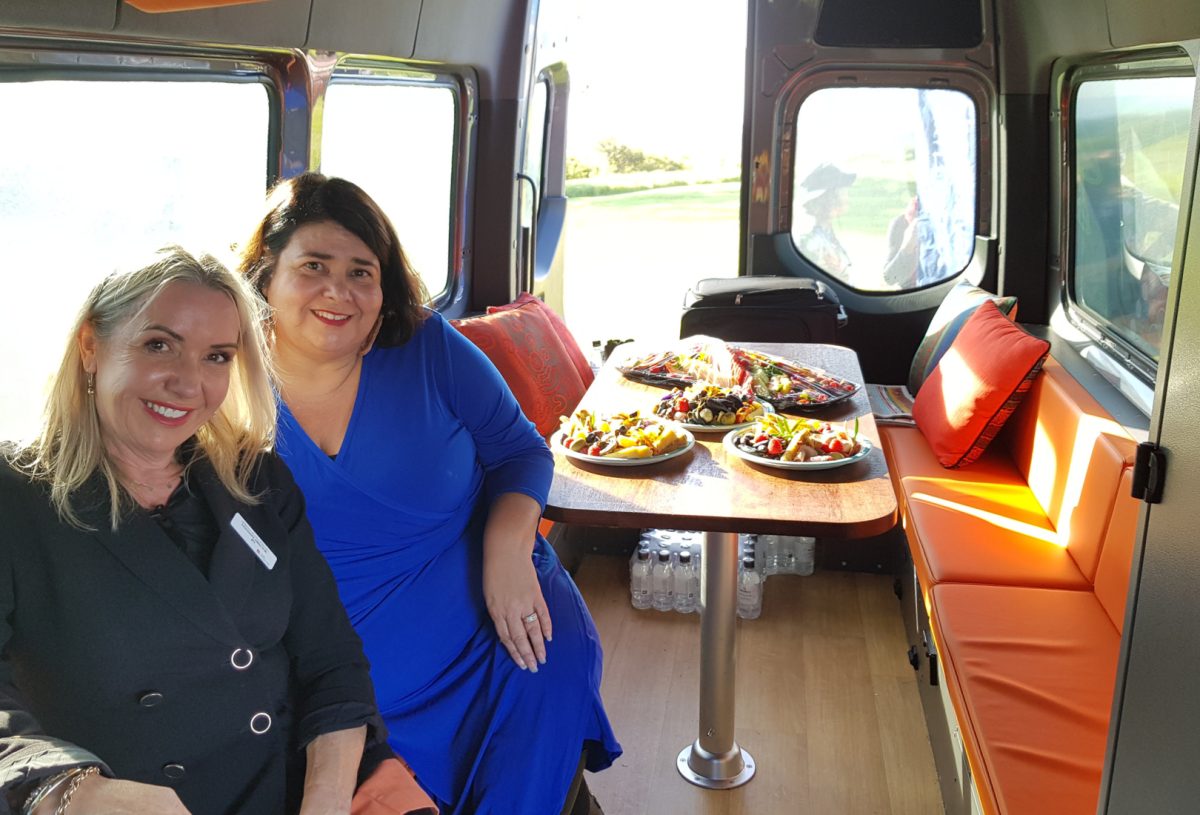
Jo Goulding and Sharlene Cruickshank inside the van. Photo: Kellie O’Brien.
A first-of-its-kind mental health and wellbeing van is hitting the road in the Illawarra and Shoalhaven, bringing culturally safe care directly to Aboriginal communities in a groundbreaking effort to close the gap and tackle longstanding barriers to support.
Mobile Outreach Mental Health and Wellbeing Van, launched during National Reconciliation Week at Killalea Regional Park in Shell Cove, will travel the region making it easier for Aboriginal people to access mental health care and support, while delivering a range of other health services where it’s most needed.
Illawarra Shoalhaven Local Health District (ISLHD) Aboriginal clinical lead Sharlene Cruickshank said the initiative emerged from community consultations, which highlighted feelings of invisibility and a sense of “shame”, along with significant gaps and traditional barriers to accessing culturally safe mental health, wellbeing and healing support in rural and regional areas.
“A lot of the time services are around, but they’re not well connected and people don’t know about them,” Sharlene said.
“A big part of what we want to do with our van is promote services, and that service connection.
“It’s that thing of going to where the people are and meeting them where their needs are.
“It’s not telling them they have to come and meet us in an office – it’s about coming down to the beach, to the bush or to the community and we’ll meet you there.”
Stepping inside the van with its tinted windows and comfy orange couch, Sharlene said it had been designed to be a welcoming, non-clinical, private and safe space.
“We talk a lot about triggers, but we’re looking for glimmers and we’re looking for the hope,” she said, through tears.
“It’s a glimmer that we’re here to do better. That’s the biggest thing I feel, is that it brings this little beautiful moment of hope.”
As tears began to take over, ISLHD Aboriginal health and workforce executive director Jo Goulding stepped in.
“What Sharlene is demonstrating is that’s what it needs to feel like for Aboriginal people,” Jo said.
“It’s the feeling of safety. It’s the experience of engagement that makes them feel different, and breaking down those historical institutional fears of accessing Western institutions that have had traumatic impacts on Aboriginal communities.”
Sharlene said she wanted the community to take ownership of the van, with some already organising visits.
“To me, that’s the biggest win, because it’s not us telling them, ‘You’ve got to use this service’, it’s actually them saying, ‘We want to use your service’.
“We need to do things differently.
“We know Aboriginal people are sick of the same old rhetoric, so we wanted them to own it, we wanted them to tell us what they need.”
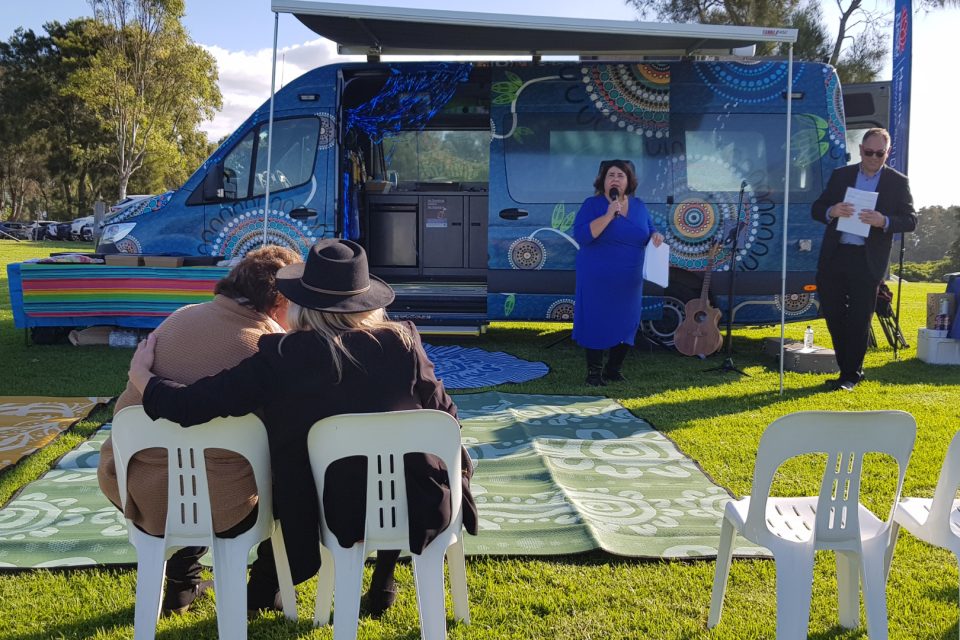
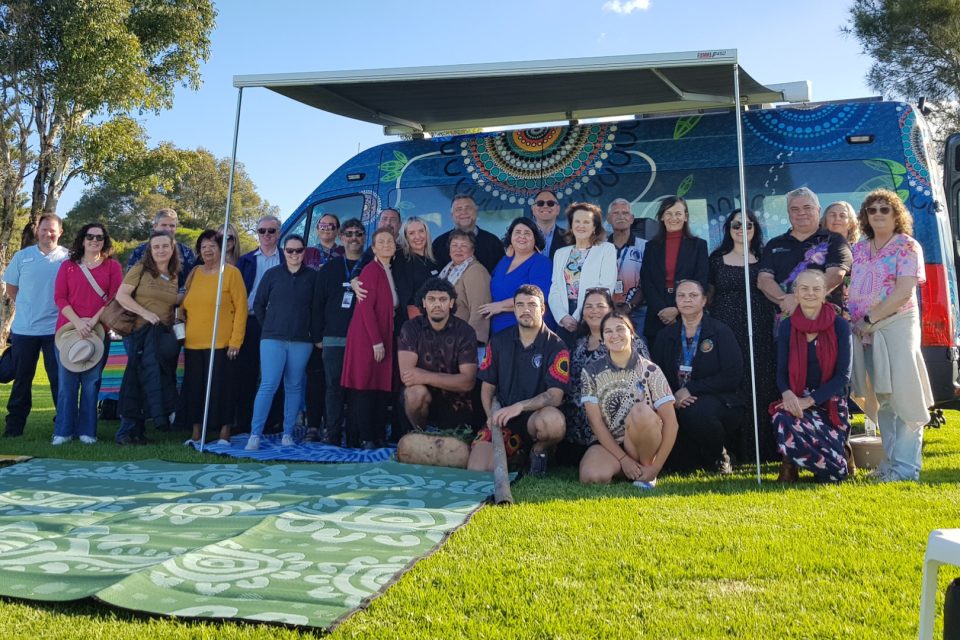
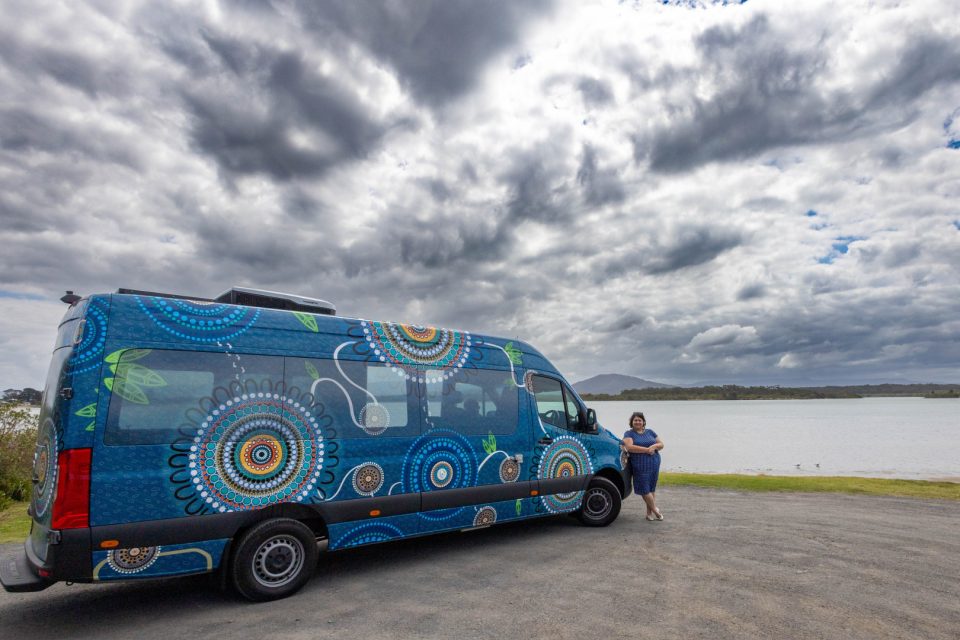
Sharlene said they began “socialising” the van last October ahead of the May launch, with it already having engaged more than 450 people, offering services ranging from mental health to family support.
She said it would continually evolve as needs were identified, with plans to introduce virtual care capabilities, allowing specialists to conduct remote consultations.
Adorned with the artwork Garadyigan (Dharawal word, meaning healer) created specifically for ISLHD by Illawarra Aboriginal artist Jasmine Sarin, the van deliberately features no names or contact numbers on the outside to encourage people to step inside to learn more.
Jo said providing cultural safety was particularly important for Aboriginal communities.
“If we cannot provide culturally safe spaces and places for Aboriginal people, they simply will not access the service, and we will never close the gap,” she said.
“This van is a representation of that, because what it does is it says to the communities that it visits and it says to the staff that we work alongside every day, we have meaning and we have purpose, and we have to deliver on Aboriginal health outcomes for our communities that we’re servicing, and we need to do it loudly and proudly.
“This van is a significant representation of doing things differently.”
Aunty Margaret Simoes said Sharlene approached her in 2022 to help conduct community workshops to seek input about their knowledge, understanding and/or experience in mental health services.
“The first thing I had to do was think about my own experience with mental health services,” Aunty Margaret said.
“If I was going to ask other people to share their experiences, their understandings and knowledge, then I needed to do the same.”
She said feedback included the need to break down the stigma and shame surrounding mental health.
“While we have strategic plans and we have community consultations, at times within our communities we very rarely see any change or any follow up of actions,” she said.
“But today, here we are launching the wellbeing van, which can travel around our communities and provide mental health, education and awareness raising. How deadly is that?
“That is what our communities need to see to break down that stigma of mental health.”
The initiative was funded through a $176,000 investment by the Aboriginal Health Minor Capital Works Program and Minister for Aboriginal Affairs David Harris said there were better health outcomes when Aboriginal people were involved with co-designing Closing the Gap initiatives, and this one was an example of that.









